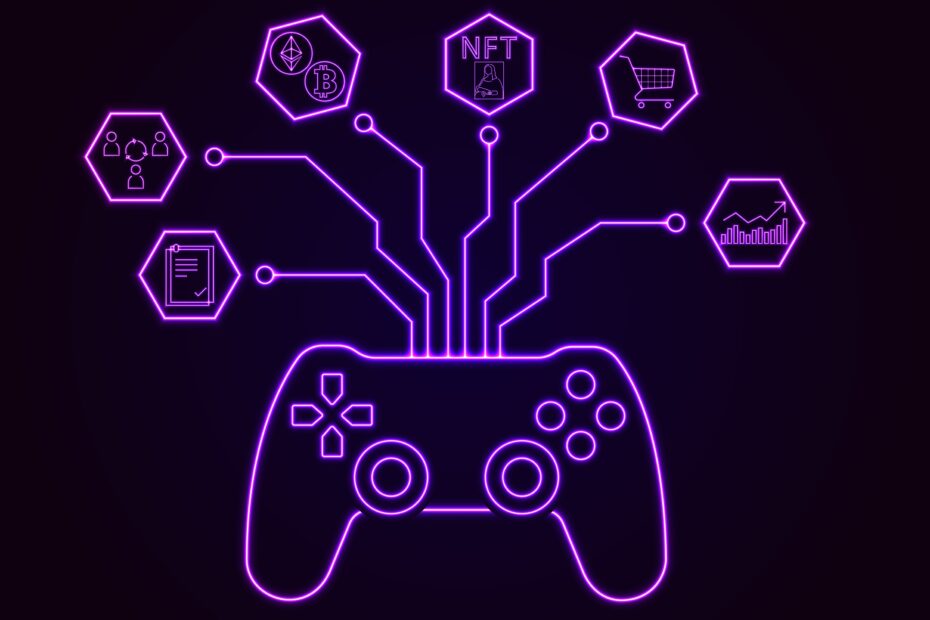Introduction
The Gaming market and Tokenomics have undergone tremendous development in recent years. The entry into the scene of blockchain-based games, i.e. with the possibility of earning money by playing, owning goods and being able to bring and use them outside the game where they were bought or won, has opened new horizons, attracting the attention of investors and the financial sector.
Key element for the functioning and success of this type of games is the tokenomics.
The Gaming market and blockchain-based games
The gaming industry, with over 3 billion active players worldwide, is bigger than film and music industries combined.
In fact, on an economic level, Gaming, globally, is now worth more than 200 billion dollars. The sector has a growth of about 10% per year.
Blockchain technology is also revolutionizing many sectors, including the video game industry. Indeed, blockchain-based games have three innovative and essential elements, absent in traditional games. They are the play-to-earn model, the concept of ownership and tokenomics.
The blockchain-based gaming industry (GameFi) is one of the fastest growing segments of the video game industry. With around $ 10 billion in earnings, it already has a significant impact on the global gaming market.
In recent years gaming, also pushed by the restrictions caused by the pandemic, has become mainstream and attracts both game enthusiasts, investors, and users who intend to turn the game into a source of income.
What is tokenomics
The term “tokenomics” is made up of two words: token and economy. This is the discipline that deals with the study and design of economic systems based on blockchain technology.
It concerns the economic functioning of tokens, from the concurrence of incentive mechanisms for users, to the creation and distribution of tokens.
Why the tokenomics of a game is important
The game tokenomics of a blockchain-based game and on the play-to-earn model basically has two functions: on the one hand it serves to make the game economically interesting for players and therefore to attract new ones, on the other the tokenomics of a game must be well balanced to avoid that players are exposed to risks and that over time the system collapses due to the lack of economic sustainability.
A well-designed tokenomics therefore means a fun game, which increases value and profits. Conversely, wrong tokenomics can mean a rapid devaluation, a not very fun game, a progressive loss of players, and even an outright collapse of the game’s finances.
Tokenonics is typically based on a virtuous circle: giving players the opportunity not only to earn through play, but also to pay with what they have earned, which will enable them to play better and earn even more.
But not only the player has to find economic motivation in the game. Two other actors in the system also have to find some motivations: these are the developers and the investors.
– Players
With graphic MMORPG (Massively Multiplayer Online Role-Playing Game) with open economies at the end of the 1990s, a new class of players emerged: the Play2Earn (P2E) category, players who seek to earn a living in whole or in part by playing.
Due to the fact that resources can actually be owned, the developer loses control over them in favour of players. If resources increase in value in the real world, their owner, i.e. in the first instance the player who owns them, gains money.
But this type of P2E player also often acts as a virality tool. Their income is linked to the future success of the product and they therefore do their best to spread its use.
There is also the Create-to-Earn category that earns money by performing another type of activity. These players generate new content in the game, such as levels, skins, music and narrative or content outside the game through streaming, podcasts or video creation.
– Developers
Developers are eager to improve or expand the current game experience. This could be new features, bug fixes or expansion of the game ecosystem, including resource tracking websites or market makers.
Developers involved in day-to-day product development expect a salary that also takes into account the success of the game. External developers, on the other hand, may submit proposals for new components or functionalities to the DAO, that could finance them.
– Investors
There are various types of investors. The initial backers of the game development who believe in its future success, then there are the investors who invest capital in tokens, often in many games, and often belonging to venture capital companies or DAOs. There are also investors who want to be able to influence the future development of the product. Therefore they invest in governance tokens. Another type of investor is the speculator, who buys game assets believing that a future scarcity will increase their value. Finally, other investors buy assets, such as NFTs, and lend them to P2E players. These investors take a percentage of their players’ winnings.
Developers, players and investors are not clearly distinct categories, in the sense that one person could be both a developer and investor, investor and player, or even play all three roles, multiplying the opportunities for profit and the commitment to spreading the use of the game.
Tokenomics is therefore also important to motivate all categories to support the game.
Conclusions
The economic systems behind blockchain-based games are not only a novelty. They are also a fundamental element of them and are a key tool for attracting both players and investors.
But they are also a key element in ensuring the sustainability of the system over time.
Good tokenomics is therefore essential for a game’s attractiveness and success over time. Also check out another post about the future of tokenization!
_____
Contact Us for Gaming and Tokenomics Consulting
